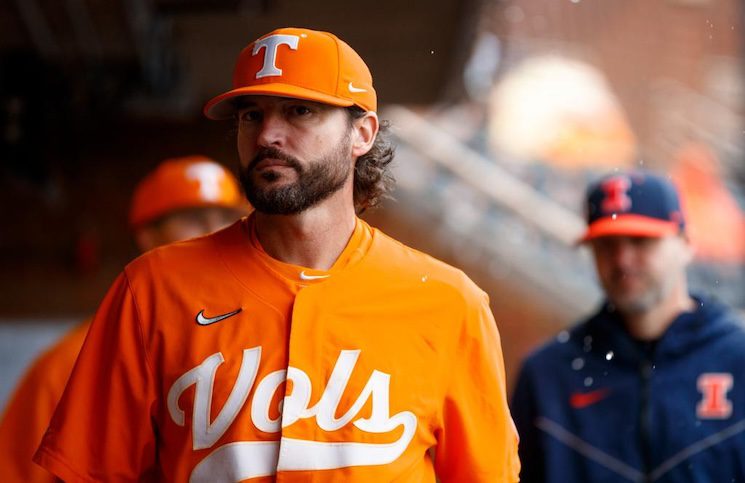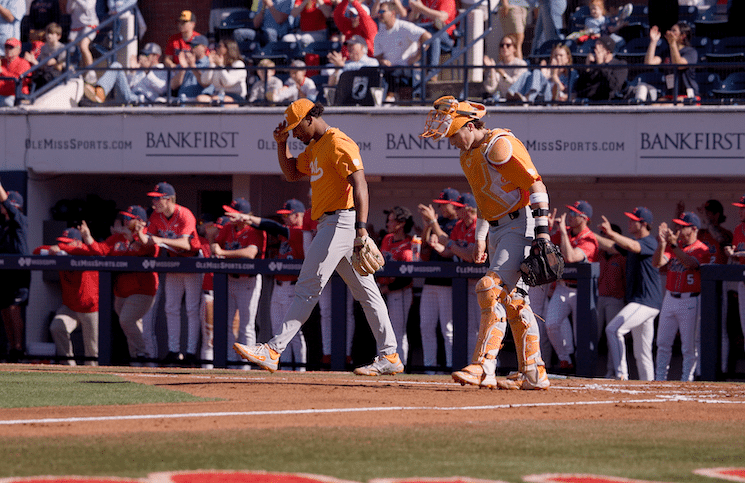
This Week in UT Sports History is a weekly column written by RTI columnist Lexie Little
Last week, the University of Tennessee celebrated the 98th anniversary of Shields-Watkins Field. Scores of men in orange and white have taken to the playing surface on the eastern part of campus to etch wins and losses in the history books of Tennessee Football. However, a few Vol greats that paved the way for the likes of Gen. Robert Neyland, Johnny Majors, and Phillip Fulmer did not play on the hallowed field. The team originally played north of Fort Sanders at Baldwin Park in Knoxville before 1908. Then, the Vols played at Wait Field—the current site of the Walters Life Science Building at UT — until 1920.
Travel back to Wait Field in “This Week in UT Sports History.”
Oct. 5, 1912
Just months after the Titanic sank on April 15, 1912, head coach Zora G. Clevenger hoped to save the sinking ship that was Edwardian Tennessee Football. The Vols earned only one victory in 1909 and three in 1910. During Clevenger’s first season in 1911, the Vols finished 3-4-2. However, his Volunteers won the first game of the 1912 season with a big shutout victory against what is now King University (Bristol, Tennessee).
“Twenty-two husky young fellows in moleskin trousers, jerseys and a few other things, assisted by a few hundred fans, will formally pry open the intercollegiate football season in Knoxville this afternoon,” the story in the Knoxville Journal and Tribune began. “The twenty-two young men referred to are the members of the elevens of the University of Tennessee and Kings College of Bristol, and they will stage their performance on Wait Field, beginning promptly at 2:30 o’clock.”
Tennessee performed, all right. Final score: 101-0, Vols.
The game marked the largest margin of victory since 1905 when the Vols beat American Temperance University 104-0. The match-up remains No. 2 in the record books for biggest win in UT history. Perhaps rule changes for the 1912 season aided the Vols.
“…A few rather radical changes will be noted,” the advance story said. “Four downs instead of three will be allowed to make ten yards; the ball will be kick off from the 40-yard line of the team kicking instead of the center of the field; the playing field will be 100-yards long instead of 110, and behind the goal lines will be the 10-yard end zones within which the forward pass may be completed for a touchdown…and the touchdown will count six points instead of five, as heretofore.”
Clevenger coached football (1911-15), basketball (1911-16), and baseball (1911-16) at Tennessee. His 1914 football team earned distinction as UT’s first undefeated team, finishing 9-0. His 1913-14 basketball team also found success, finishing the season 15-2 with the only losses coming against Kentucky. The 1915-16 basketball team earned a perfect record — 12-0 — in the only undefeated season ever for Vol Basketball.
Oct. 3, 1914
New year, old match-up. The Bristolians from King College (now King University) trekked to Knoxville yet again nearly two years later in hopes of defeating the Volunteers. Tennessee handily defeated Carson-Newman 89-0 the week prior. But the men from the state line held some hope.
“According to the advance ‘dope,’ the Bristolians will outweigh the locals nearly four pounds to the man,” the Journal and Tribune reported. “Furthermore, the visitors not only expect to keep down the score of the Tennessee team, but also think they will do something in the scoring line, too, it is said. Therefore, Tennessee may have considerable trouble in disposing of the border city athletes.
“…if the King College players are as ‘good’ as they think they are, the locals will hardly score as many touchdowns this afternoon as they did last Saturday…The Bristolians are husky looking young fellows, who ought to give a good account of themselves on the gridiron.”
King did, indeed, perform better than Carson-Newman: slightly better, only losing 55-3 at the hands of Clevenger’s future undefeated team and Southern Intercollegiate Athletic Association champions. King’s only points came in the third quarter off a drop-kicked field goal against the “orange and white warriors.”
Tennessee adopted orange and white as its colors in 1891, the hues of daisies that grew on The Hill around Ayres Hall. The 1914 uniforms featured orange rings around the sleeves and socks. The Vols would not wear orange jerseys until 1922.
The so-called warriors in orange and white depended on the run game to win.
“Only three forward passes were tried by the Volunteers, and none of these was completed,” the recap recounts. “The ball was heavy and muddy, and this may have been responsible for the failure to complete the passes.”
The forward pass, at the time, had only been a legal play for eight years. The Chicago Tribune reported 18 deaths and 159 injuries during the 1904 football season. Hundreds called to abolish the game, prompting President Theodore Roosevelt to demand reform as to save gridiron battles from peril. Roosevelt’s own son played for Harvard and suffered facial injuries as a freshman.
Ever the man’s man, Roosevelt sought to minimize harm while not allowing officials to “emasculate football.” He would not allow football to be played “on too ladylike a basis.” So, he encouraged Ivy League coaches to implement rule changes including allowance of the forward pass.
King completed four of ten forward passes in the game for nearly 100 yards. However, the Volunteer backs toughed it out on the “heavy, muddy field” to beat the Bristolians by 52 points. King adopted the Tornado nickname for athletic teams in 1922 when the football team scored 206 points against Lenoir-Rhyne in a shutout victory. King eventually disbanded its football program.
While some fans would rather disband the Tennessee football program this season, more than 100 years after Clevenger’s Vols played at Wait Field, gridiron traditions continue — perhaps with only three wins or fewer like the Edwardian-era Volunteers. The Vols face the No. 3 Georgia Bulldogs at 7 p.m. on Saturday in Knoxville. The game will be televised on ESPN.




